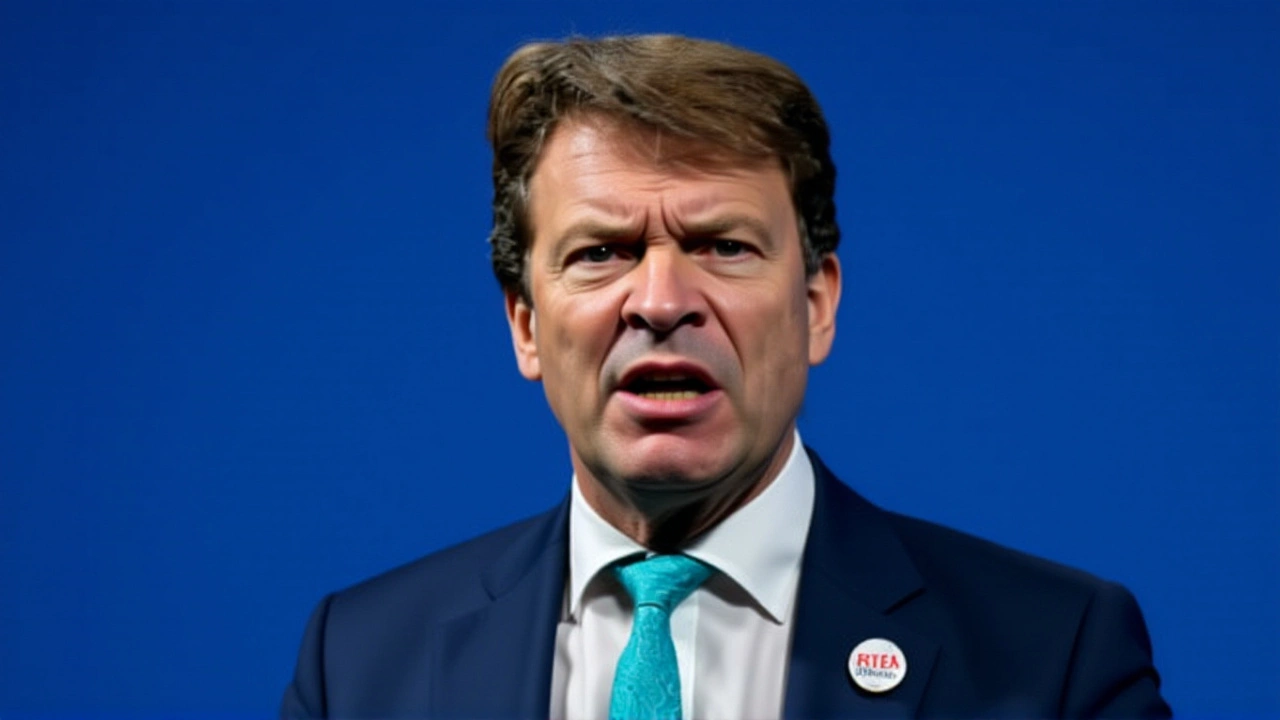When Richard Tice, Deputy Leader of Reform UK, told reporters on that his party would scrap the Northern Powerhouse Rail (NPR) project entirely, the headline made it clear why the debate over northern transport just got a lot messier. The pledge, set out in a Policy Exchange report titled “Instead of high‑speed rail: Northern transport schemes that will work,” sent shockwaves through a region that has long been promised a boost in connectivity between Liverpool, Manchester and Leeds. If Reform wins the next general election, billions of pounds earmarked for new tracks, stations and jobs could disappear overnight – a prospect that has already sparked heated rebuttals from local business groups and transport experts.
Why the Northern Powerhouse Rail Matters
The NPR scheme, first announced by the current government in 2021, is billed as a £38 billion investment that would slice travel times, link major economic hubs and create roughly 30,000 construction jobs. In theory, a high‑speed line could see a Liverpool‑Manchester journey cut to under 30 minutes, while the Leeds corridor would benefit from faster links to the west. Critics, however, point out that the planned route would skirt existing lines, requiring costly tunnelling and new viaducts that some analysts say are “hardly better than the status quo.” The Policy Exchange report, which Richard Tice himself penned the foreword for, argues that the project would make even HS2 look sensible – a backhanded compliment that rings hollow for many northern voters.
Reform UK’s Argument: Money Talk
During the briefing, Tice urged firms eyeing NPR contracts to “not bother” – a blunt warning that the party would pull the plug before any bids were even evaluated. He claimed a Reform‑led government would redirect the funds to “things the country needs more,” though he offered only vague hints at what those priorities might be. No detailed budget re‑allocation was provided, leaving opponents to wonder whether the promised alternatives are merely political sound‑bites. As Tice put it, “We’ll invest where it delivers the biggest bang for the buck, not in vanity projects that cost a fortune and deliver little.”
Voices from the North: Pushback From Business Leaders
Naomi Smith, Chief Executive of Best for Britain, fired back, saying, “The question isn’t whether the North needs more rail – it clearly does – but whether voters can trust Reform to replace a cancelled scheme with something worthwhile.” She added that the party’s track record on delivering promised investment, especially post‑Brexit, has been “mixed at best.” Smith’s comments echo a broader sentiment among local chambers of commerce: the region already feels neglected, and suddenly pulling a major infrastructure promise could deepen the sense of abandonment.
Political Context: Election Year Stakes
The timing couldn’t be more strategic. With the next general election due by early 2026, parties are racing to lock down regional votes. The current government, led by Prime Minister Rishi Sunak, has hinted it will solidify its commitment to the Liverpool‑Manchester leg before the Labour Party conference in October. A ministerial source told the press that a formal decision could be announced as early as mid‑October, a move designed to show the Conservatives still have a plan for the north. Reform’s hard‑line stance, by contrast, is meant to draw a clear line between the two major right‑wing options, forcing voters to choose between a “big‑ticket” rail vision and a “spend‑on‑what‑matters” promise.

Implications for Jobs and the Local Economy
Should the NPR be scrapped, the immediate fallout would be the loss of an estimated 30,000 construction and engineering jobs. Those positions are expected to be spread across the three cities and surrounding towns, ranging from on‑site labour to high‑skill project management roles. The longer‑term impact could be a slowdown in regional economic growth. Analysts at the Centre for Cities previously estimated that each £1 billion invested in the north yields roughly £1.5 billion in added economic activity over a decade. Removing a £38 billion project could therefore shave off tens of billions in long‑run output, a figure that would be hard to recover without an alternative plan.
What Might Replace the Rail Project?
The Policy Exchange paper lists “a series of alternative schemes” that would “deliver more, to more people, in more places, more quickly.” Unfortunately, the report stops short of naming specific projects, funding sources, or timelines. Some speculation points to expanded bus rapid transit corridors, upgrades to existing Midland Main Line services, and a boost to electric freight routes. Yet without concrete figures, critics argue the alternatives are little more than a placeholder – a way to keep the political narrative alive while the real details remain hidden.
Looking Ahead: What to Watch For
Key dates to mark on the calendar: the Labour conference in early October, the pending Conservative decision on the Liverpool‑Manchester leg in mid‑October, and the official release of the next election manifesto in January 2026. Each of these moments will either cement the NPR’s future or confirm its demise. Meanwhile, local authorities in Liverpool, Manchester and Leeds are already drafting contingency plans, hoping to secure funding from other sources if the project is killed off.
Frequently Asked Questions
What exactly is the Northern Powerhouse Rail?
NPR is a proposed high‑speed rail network linking Liverpool, Manchester, Leeds and several intermediate cities. Planned to cost about £38 billion, it aims to cut travel times, create around 30,000 jobs and stimulate economic growth across the north of England.
Why does Reform UK want to cancel the project?
Reform argues the scheme is financially wasteful and that the promised travel‑time savings are overstated. Their policy paper says the money would be better spent on more immediate transport improvements, though they haven’t detailed what those would be.
How would scrapping NPR affect local jobs?
Industry estimates suggest up to 30,000 construction and engineering jobs are tied to the project. Canceling it could mean those positions disappear, potentially raising unemployment rates in the three core cities and surrounding towns.
What alternative transport plans might replace NPR?
Policy Exchange mentions faster bus‑rapid‑transit lines, upgrades to existing rail corridors and increased electrified freight routes, but no specific projects or funding mechanisms have been outlined yet.
When will the next decision on NPR be made?
The government is expected to announce its final stance on the Liverpool‑Manchester leg by mid‑October 2025, with a full policy statement possibly coming before the Labour Party conference later that month.
